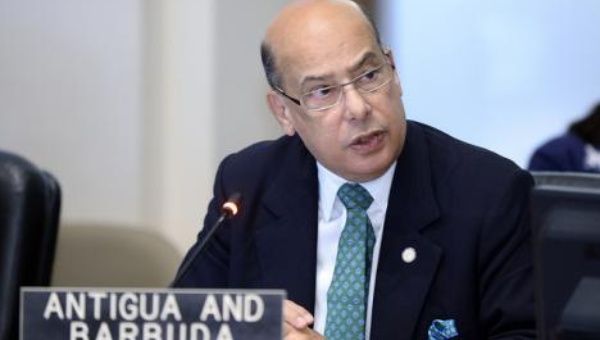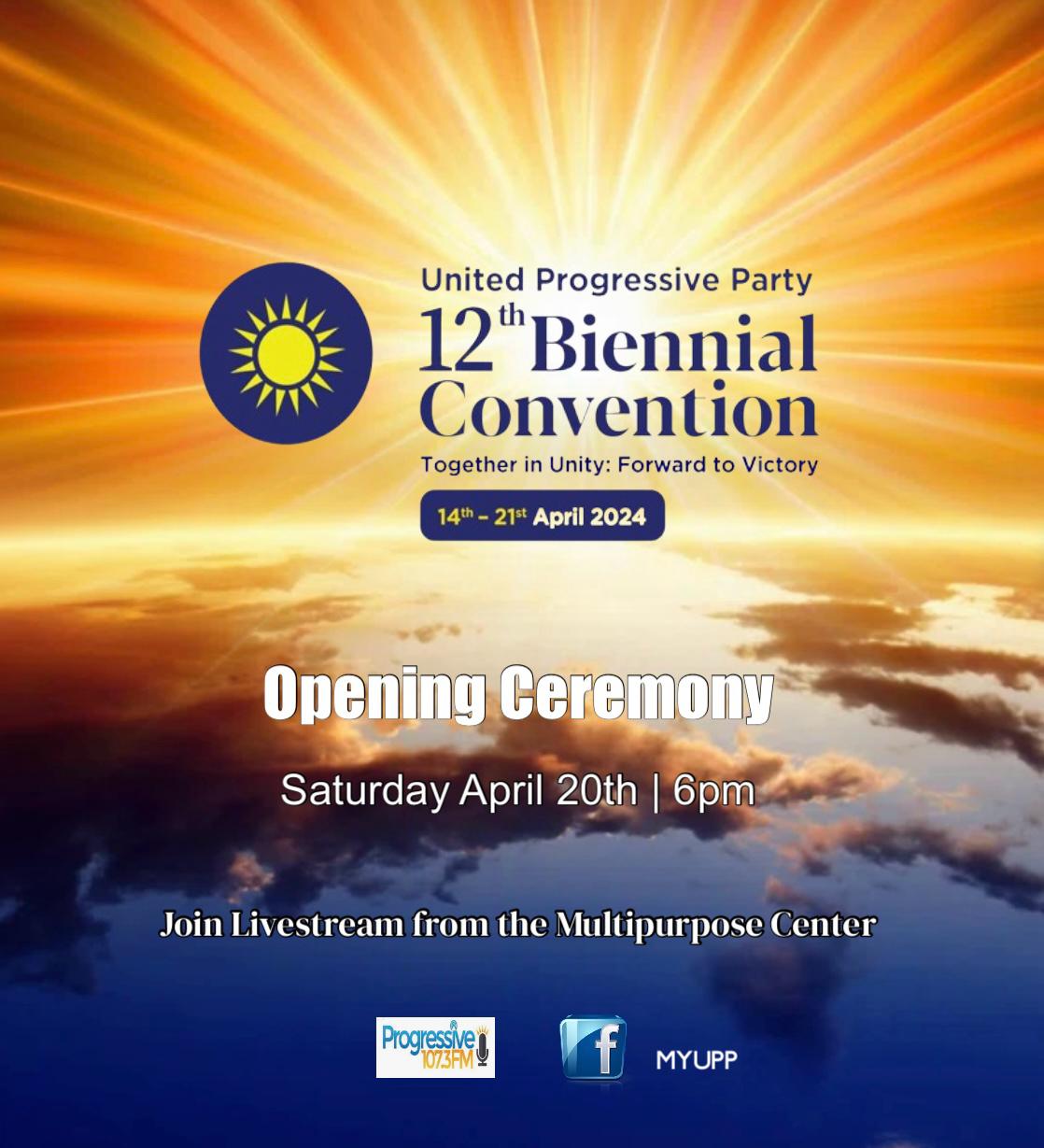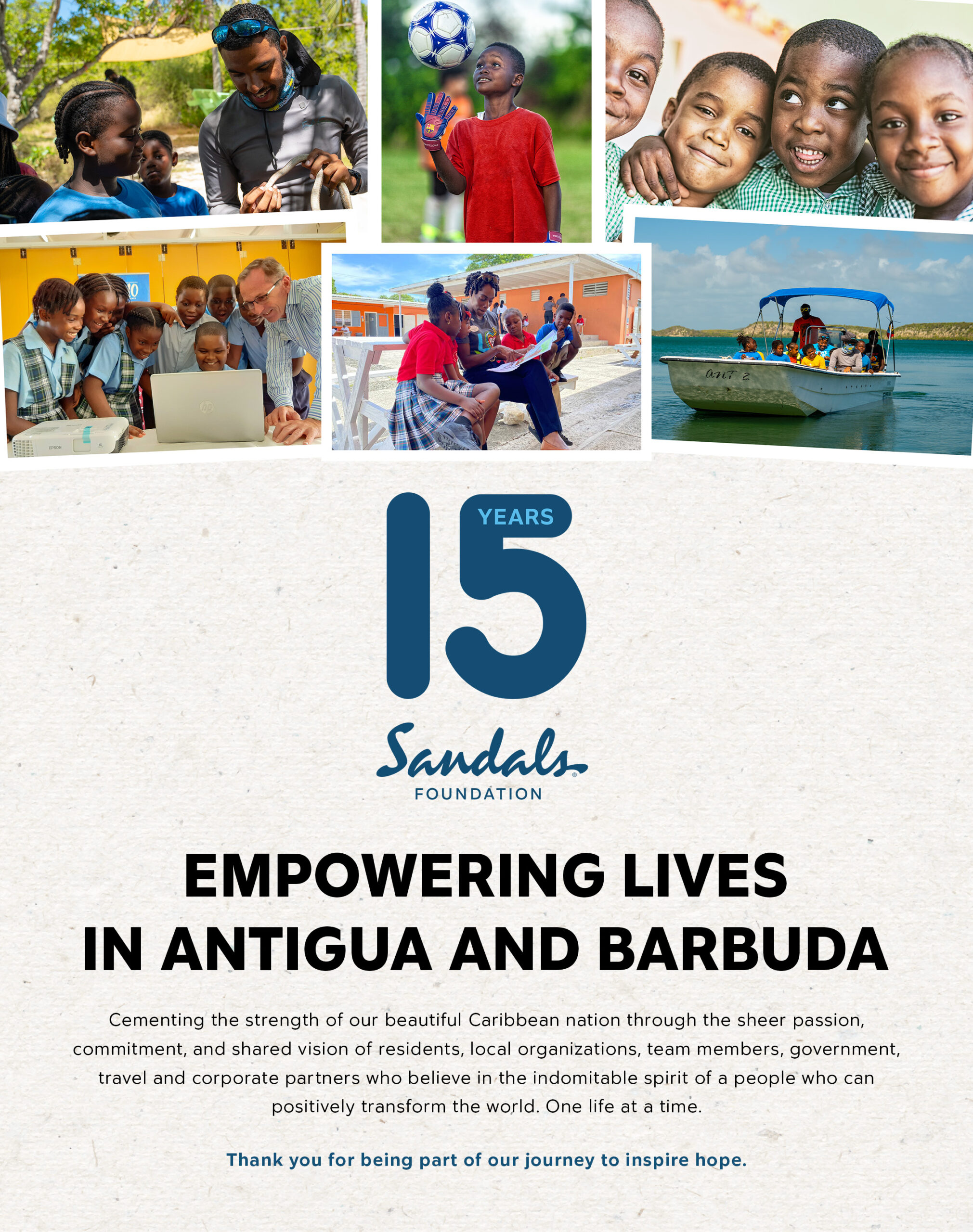
By Sir Ronald Sanders
(The writer is Ambassador of Antigua and Barbuda to the United States and the Organization of American States. He is also a Senior Fellow at the Institute of Commonwealth Studies at the University of London and at Massey College in the University of Toronto. The views expressed are entirely his own)
Double standards have become the new system in the Organization of American States (OAS). This unwholesome development does not portend well for the future of the Organization which is increasingly becoming a rubber stamp for the will of a few governments. It also creates a huge cloud over the bilateral relations of nations within the hemisphere.
This undesirable development was brought into stark and glaring reality over events in Bolivia. The Permanent Council of the OAS, the Secretary-General, Luis Almagro, and the governments that are usually quick to lambaste other governments on human rights issues, have all been silent in what has been happening in Bolivia, starting with the coup d’état of October 20 that forced the elected President, Evo Morales, from office and into asylum in Mexico.
The Organization and Secretary-General Almagro have said nothing about the gross human rights violations against the indigenous people of Bolivia.
“At least eight young Bolivians were killed on Tuesday (November 19) when the country’s political crisis exploded into deadly violence in the city of El Alto. Nearby lay another five bodies, their feet poking from blankets or flags, their names and ages printed on A4 sheets placed on top of the corpses. “Joel Colque Patty, 22”; “Devi Posto Cusi, 34”; “Antonio Ronald Quispe Ticona, 23”; “Clemente Eloy Mamani Santander, 23”; “Juan Jose Tenorio Mamani, 23”, reported the British Newspaper, the Guardian. The report continued: “The rightwing interim government that took power after Morales’ toppling on 10 November has rejected claims the army was behind Tuesday’s killings, which came during confrontations between troops and Morales loyalists outside a fuel storage depot the latter had been blockading. But in El Alto – a teeming high-altitude city near La Paz long considered a Morales stronghold – locals are adamant the government is to blame for what they call a massacre of innocent workers”.
What the Guardian newspaper reporter, Tom Phillips, in El Alto, knows must also be known to governments of OAS member states who have Embassies is Bolivia and nearby countries. Yet, not one of them has raised the issue of human rights violations in Bolivia. Incidentally, they have also not done so in relation to Chile – a vocal member of the Lima Group – or Ecuador whose government has become a recent convert to Lima Group positions. Haiti, whose government, votes consistently with the Lima Group, has also been spared any criticism despite ongoing unrest in the country. The double standard is blatant, patent and flagrant.
Another almost scandalous manifestation of the double standard being applied in the OAS – and one that Secretary-General Almagro has never explained – is that almost in the same words that the OAS electoral observation mission used to describe the elections of October 20 in Bolivia, another OAS electoral observer mission (EOM) to Honduras in 2017 denounced the election result in that country. But, neither the Secretary-General nor governments brought the matter to the Permanent Council, nor did they seek to conduct an audit of the election nor did they demand new elections.

The following is what the electoral mission to Honduras concluded in its November 27, 2017 report: “Based on the analysis contained in this report and the observations included in the two preliminary reports, the EOM considers that it observed a low-quality electoral process. The abundance of irregularities and deficiencies is such as to preclude full certainty regarding the outcome”.
The question is left blowing in the wind: why one standard for Honduras, and another for Bolivia?
To be clear, all matters of this kind should be brought to the Permanent Council with clear and unbiased information to inform member states. The election in Bolivia needed to be discussed fairly, transparently and openly. But so, too, was a discussion necessary of the elections in Honduras.
It is remarkable that the day after the November 19 atrocities in Bolivia, a Permanent Council meeting was held at the OAS at which not only was no mention made of it by the governments that brought a resolution on Bolivia, but no reference whatsoever was made to the role of the military in ousting Morales from Office, three months before his legitimate term in office was scheduled to end.
The Antigua and Barbuda delegation to that meeting stated that, notwithstanding the coup d’état of October 20, the Government of Antigua and Barbuda recognises: “There is a de facto government in Bolivia. And, in as much as Antigua and Barbuda objects to the manner in which the government came to office, we acknowledge that its de facto status gives it the authority to act on behalf of the state”. This is the same reason why Antigua and Barbuda has stated it recognises the government of Nicolás Maduro in Venezuela.
In its statement to the Permanent Council, the Antigua and Barbuda delegation also declared that it “is extremely anxious that the human rights of all Bolivians, especially its indigenous people, are provided full and unrestricted observance and protection”.

Very conscious of the double standards that now prevail in the OAS, the Antigua and Barbuda delegation also noted that in the resolution on Bolivia, which did call for elections to be held urgently, there was no reference to the constitutional requirement for the election to be held in 90 days. We made it clear that: “We are troubled by the omission of a specific reference to the 90-day requirement” and we stated our expectation that “if the 90-day requirement is ignored or pushed back without a full and credible explanation, the OAS delegation will immediately publish a report denouncing such a development”.
On the same day, the representative of the US delegation speaking under “Any other business”, usually reserved for non-contentious announcements, stated that the US “welcomes the attention of the OAS member states to appreciate the tense political situation in Dominica, surrounding the December 6 elections”. That is fair enough; all tense situations should be fully discussed to ascertain how the OAS can play a legitimate role. The discussion should be held on Dominica – but others as well including Bolivia, Chile, Ecuador, and Haiti.
Responses and previous commentaries: www.sirronaldsanders.com
Advertise with the mоѕt vіѕіtеd nеwѕ ѕіtе іn Antigua!
We offer fully customizable and flexible digital marketing packages.
Contact us at [email protected]

















Notes From A Native Son Of The Rock! “Let the word go forth from this time and place, to friend and foe alike, that the torch has been passed to a new generation of Americans, born in this century, tempered by war, disciplined by a hard and bitter peace, proud of our ancient heritage, and unwilling to witness or permit the slow undoing of those human rights to which this nation has always been committed, and to which we are committed today at home and around the world.” ― John F. Kennedy!
Well Chronicled! As the Good Ambassador knows the Peoples of this Hemisphere are steeped in the Abrahamic Religions!
The Don has brought back the Archangel and Architect to the Latin American and Caribbean Desk!
“Let every nation know, whether it wishes us well or ill, that we shall pay any price, bear any burden, meet any hardship, support any friend, oppose any foe to assure the survival and the success of liberty.” – JFK!
Comments are closed.